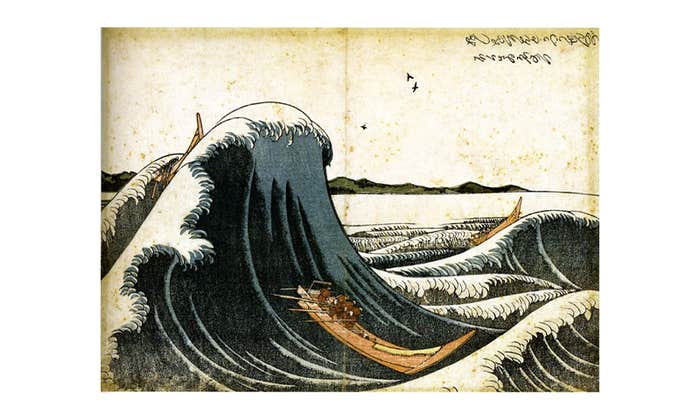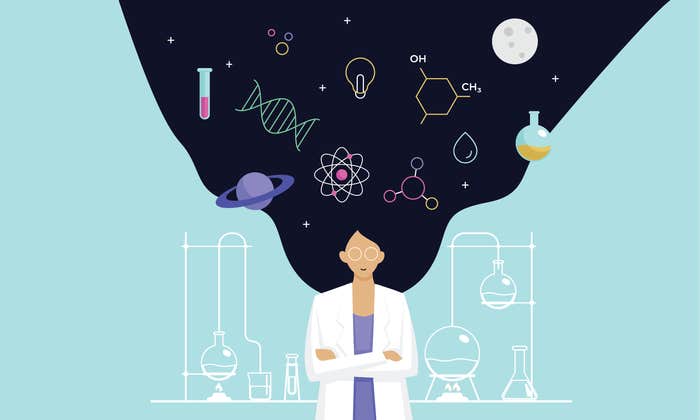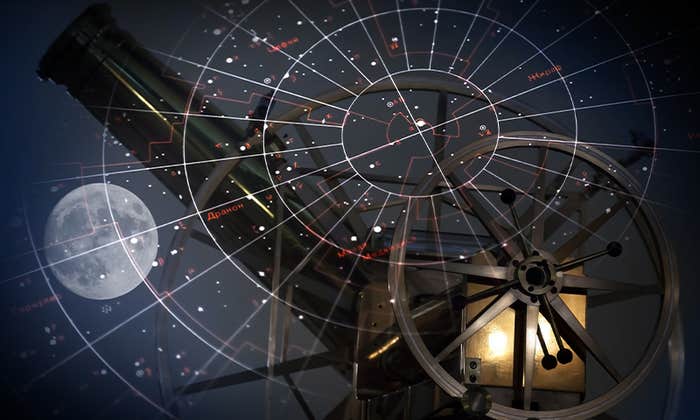Let’s play a game. You get a box with two compartments and one ball. The ball could be in either compartment with equal probability, and my job is to guess which one. Ok, it’s not the most exciting game, but at least it’s fair. My odds are 50/50.
But suppose I know that your box was produced in a factory where a conveyor belt brought boxes to a cannon, which shot balls into one compartment or another depending on a coin toss. The coin toss was done once a day, and all the boxes produced on the same day have the ball in the same compartment. If I managed to get a box that was produced on the same day as yours, I would be able to win the game with certainty. So much for being fair.
The lesson is clear: Whether or not our game is fair depends on whether or not the ball in your box is correlated with some other system in my possession. In order to be sure that I don’t cheat, you need to collect all the systems that are correlated with your box and keep them safely in your control. But how can you be confident that you’ve collected all of them? The strongest guarantee is that your systems are in what physicists call a “pure state,” which means that nothing else can be correlated with it, and that you have maximal knowledge of your systems. A “mixed state,” on the other hand, gives you only partial knowledge, and some essential information can hide elsewhere.
And just like that, we have come to an idea at the heart of quantum mechanics, called the Purification Principle. It states that if one takes into consideration a sufficient number of systems, it is always possible to find a level of description where all systems are in a pure state. The Purification Principle is a sieve that separates physical theories that can aspire to fundamental status, from those that are merely effective. After all, fundamental theories of nature should describe phenomena in a self-contained way, making predictions that cannot be altered by the presence of information hiding elsewhere.
Quantum mechanics is the only standard theory that can satisfy Purification while allowing for the idea of probabilities in nature.
By this definition, Newtonian mechanics is fundamental. It satisfies Purification in a trivial way. The theory deals only with pure states, which are specified by the positions and velocities of the particles of interest. On the other hand, classical statistical mechanics—which is the basis for thermodynamics, among other things—violates the Purification Principle. It does not specify the positions and velocities of all particles, but instead only assigns them a probability distribution. No matter how many particles we include in the description, we will never be able to exclude the possibility that they are correlated with some other system. This opens the door, in principle, for some agent to take advantage of hidden correlations. Which is exactly what happens in famous thought experiments like Maxwell’s demon and Szilard’s engine, essentially two sophisticated versions of our ball-and-compartment game.
What about quantum mechanics? It turns out that not only is it a fundamental theory, but it is the only standard theory that can satisfy Purification while allowing for the idea of probabilities in nature. This is the central result of a 2011 paper by Mauro D’Ariano, Paolo Perinotti, and myself, and it brings us to a fork: Either the outcome of every event is predetermined, or quantum theory must be the correct description of the natural world.1 In other words, only in a quantum world can the notion of randomness—and hence information—play a role in the fundamental laws of physics. For if every event was predetermined, the outcomes of all experiments should be independent of the information possessed by any agent.
The Purification Principle leads to some striking consequences. Imagine a mechanism that prepares a system in a manner that depends on the outcome of a random event. Since the event is random, and relies on information that we don’t have, the system will be a mixed state. Now, the Purification Principle guarantees that we can find a sufficient number of systems, which together are in a pure state. This leads to a situation without analog in the classical world: We can have maximal knowledge about a composite system, but remain ignorant about its parts. Erwin Schrödinger named this “entanglement” and famously wrote “I would not call that one but rather the characteristic trait of quantum mechanics, the one that enforces its entire departure from classical lines of thought.”
Entanglement has many potential applications. For example, it guarantees that some correlations are intrinsically private. Imagine that system A is in a mixed state, while the composite system AB is in a pure state. As a consequence of its purity, the state of AB must be uncorrelated with the rest of the world. This property is known as monogamy of entanglement and is the root of many quantum cryptographic protocols, such as Artur Ekert’s 1991 key distribution protocol. The idea is simple: Two distant parties holding systems A and B, respectively, can generate correlated random bits, which they can later use as a secret key to encrypt messages. The monogamy of entanglement guarantees that no third party can be correlated with their random bits and decrypt the message.
Physicists can take heart from quantum information theory. When quantum mechanics was first formulated, it seemed that physics had lost something. To classical physicists, it was as though the beautiful clockwork universe of Galileo and Newton had been shrouded with a cloud of indeterminacy. But quantum information has been the joyful discovery that quantum mechanics is not only a theory of limits, but also a theory of new opportunities, such as secure quantum cryptography and super-fast quantum computers. From this angle, quantum theory does not look any longer like “physics with something less,” but instead like “information theory with something more.” That “something more” is provided—we believe—by the Purification Principle, which lets us harness randomness in ways that were undreamt of in the classical world of Galileo and Newton.
Giulio Chiribella is a professor at Tsinghua University in Beijing, China. His research focuses on quantum information theory, quantum foundations, and mathematical physics.
Reference
1. Chiribella, G., D’Ariano, G.M., & Perinotti, P. Informational derivation of quantum theory. Physical Review A 84, 012311 (2011).






























